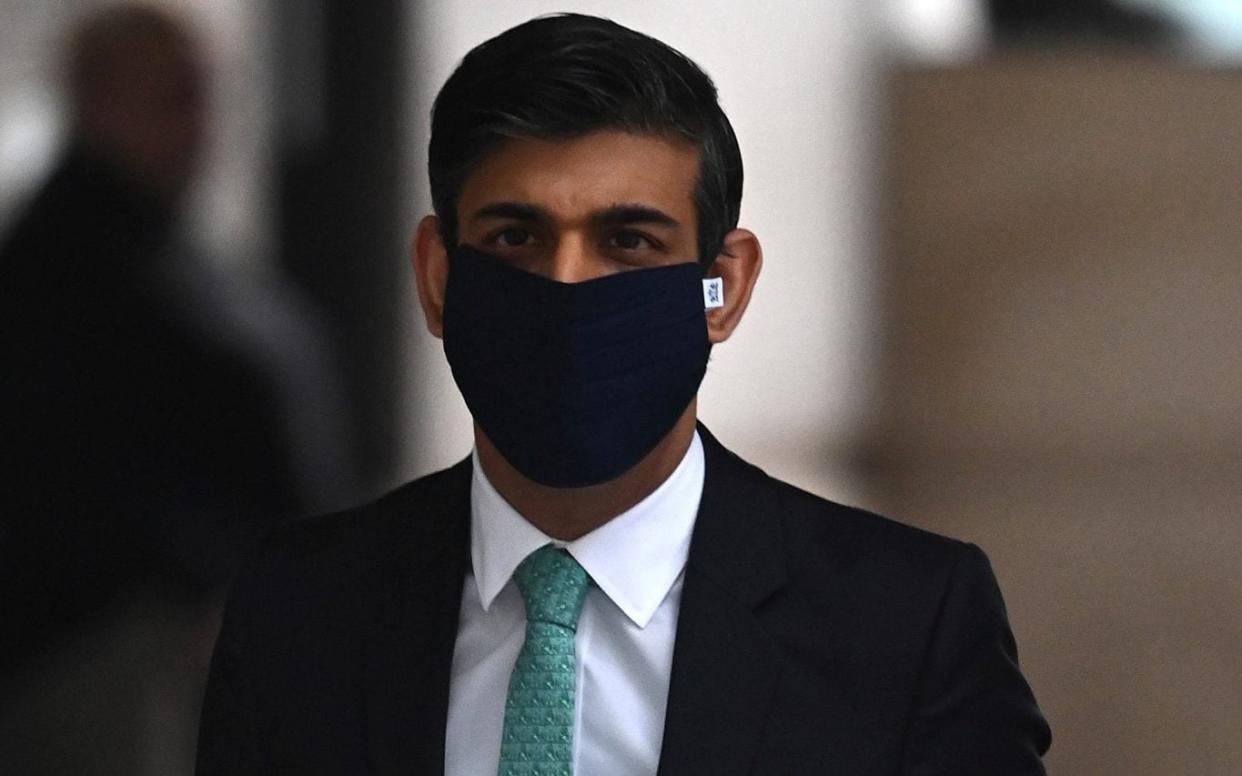Rishi Sunak paves the way for tax rises with warning of 'enormous toll' of the pandemic on public finances

Rishi Sunak has paved the way for tax rises, warning he must "level" with the public about the "enormous toll" the coronavirus pandemic has had on the economy in this week's Budget.
The Chancellor of the Exchequer said the Government would lay out a package of measures that would “align with the roadmap”, but that the UK must begin to eliminate its debt as the pandemic eases.
Mr Sunak would not comment on specific tax policies in a Sky News interview on Sunday, but said he would “level with people” on Wednesday about the “scale of the shock we have experienced”.
The Treasury is widely expected to freeze the bottom and higher rate income tax thresholds in this week’s statement, effectively raising tax levels without increasing rates.
An increase in business rates has also been rumoured, with some commentators pointing out that the UK has the lowest rate in the G7 club of rich countries, at 19 per cent.
The United States’ rate of corporation tax is 26 per cent, while France’s is 32 per cent.
A tax on tech giants has also been floated as a potential source of revenue for the Treasury.
Asked about his plans for online companies, Mr Sunak pointed to the introduction of last year’s Digital Services Tax but said he was working with other G7 finance ministers to set a level of tax for the firms in future.
The proposed rises have been unpopular with the Labour Party, which has warned that rises should wait until the pandemic is over, and with figures on the Tory backbenchers.
A group of 48 MPs from seats in the North of England have written to the Chancellor today to warn against any increase in business rates.
Mr Sunak said the Government would continue to support businesses and families through the pandemic while lockdown restrictions are still in place, suggesting that larger tax increases would be postponed until later this year or in 2022.
He also hinted that the furlough scheme would be extended in this week’s Budget, but stopped short of confirming any individual measures that have not yet been announced.
“I think it’s right that the support aligns with the roadmap,” he said.
“The Prime Minister’s roadmap has a path on which we will slowly reopen our economy. We want to make sure that our support supports people along that path.
“That’s what you will see on Wednesday.”
The Chancellor also repeated the Government’s commitment not to open up the economy any sooner than laid out in the roadmap.
Mr Sunak said the key dates of April 12, May 17 and June 21 would not be moved earlier, despite Boris Johnson’s declaration that ministers would be led by “data, not dates”.
Once the restrictions are eased, he said ministers want the public to be “out and about” spending money to stimulate the economy.
The Government today announced a new £5 billion grant scheme to “get the tills ringing again” on British high streets.
Nearly 700,000 businesses will be eligible for “restart grants”, worth up to £18,000 per firm.
On the national debt, which has now reached £2 trillion, Mr Sunak warned that tough measures would eventually be needed to avoid a spiralling debt burden that would put the UK on a weak footing to deal with a future crisis.
“Coronavirus has also just had an enormous toll on our economy, and I want to level with people about that, about the problems that that causes and the challenges it presents us with, and be honest about our plans to address those,” he said.
“We do have a challenge in our public finances, and if we don’t do anything borrowing will continue to be at very high levels even after we have recovered from Covid, debt will rise indefinitely.”
Asked why the UK would not continue to borrow at low interest rates, as the United States appears to be doing at the direction of Joe Biden, Mr Sunak said interest rates could always change and leave the UK with a high cost to service its borrowing.
“I would like to be able to keep taxes low for people in general. I’m a Conservative and I believe in that,” he said.
“But I want to deliver our promises that we made to the British people, that we would be responsible with their money, that we would look after the nation’s finances and we would deliver strong public services.”

 Yahoo News
Yahoo News 
